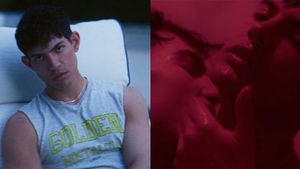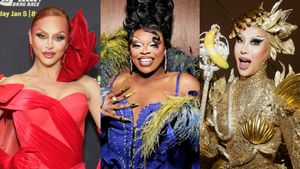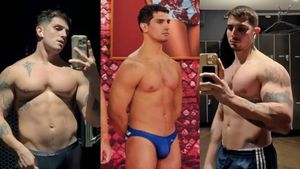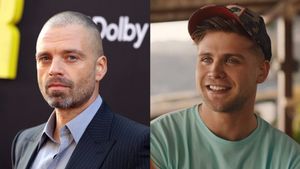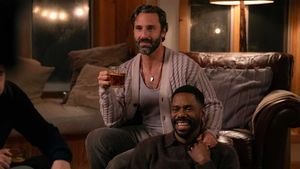Scarlett Johansson is no stranger to controversy.
![]()
Over the past few years, the longtime, Oscar-nominated actress and Marvel Studios star has, to put it bluntly, put her foot in her mouth on multiple occasions and caused some media stirs with her comments about portraying Asian characters and being offered/accepting the role of a trans man (just to name a few).
"I certainly would never presume to play another race of a person," she told Marie Claire back in 2017 after starring in Paramount's live-action Ghost in the Shell adaptation, a movie based on a popular Japanese anime franchise that was met with accusations of whitewashing after the lead role was given to Johansson instead of a Japanese actress. "Diversity is important in Hollywood, and I would never want to feel like I was playing a character that was offensive. Also, having a franchise with a female protagonist driving it is such a rare opportunity. Certainly, I feel the enormous pressure of that — the weight of such a big property on my shoulders."
And in 2018, ScarJo withdrew herself from the lead role in a proposed film by Ghost in the Shell director Rupert Sanders called Rub & Tug based on the story of Dante "Tex" Gill, a transgender man who ran several Pittsburg massage parlors in the '70s that were actually fronts for prostitution.
"I have great admiration and love for the trans community and am grateful that the conversation regarding inclusivity in Hollywood continues," Johansson said in a statement, after initially defending the decision to be cast in the role of a trans man, despite being cis woman. "While I would have loved the opportunity to bring Dante’s story and transition to life, I understand why many feel he should be portrayed by a transgender person, and I am thankful that this casting debate, albeit controversial, has sparked a larger conversation about diversity and representation in film."
Despite being pretty unapologetic about her past controversial comments at first — in 2019, she told As If magazine "You know, as an actor I should be allowed to play any person, or any tree, or any animal because that is my job and the requirements of my job" — it looks like now, the 36-year-old actor, who is set to reprise her role as the beloved female Avenger member Black Widow in her first solo film for Marvel Studios later this year, is opening up about the controversies she's started in the past, and how she is now actually "embarrassed" by them.
"I'm going to have opinions about things, because that's just who I am," she told the UK's women's lifestyle mag The Gentlewoman in a recent interview. "I mean, everyone has a hard time admitting when they're wrong about stuff, and for all of that to come out publicly, it can be embarrassing."
"To have the experience of, 'Wow, I was really off mark there,' or I wasn’t looking at the big picture, or I was inconsiderate. I’m also a person," she continued, speaking on learning to recognize when it's not her turn to speak up on things. "I can be reactive. I can be impatient. That doesn’t mix that great with self-awareness."
Well, self-awareness is key, especially when it comes to someone with a huge spotlight and platform like Scarlett's, so at least she's trying to be more aware, nowadays right??
![]()
Still, after creating headlines in the past, Johansson now is pushing back on the idea that popular celebrities, such as herself, should have to be perfect role models and comment on current, hot-button issues.
"I don’t think actors have obligations to have a public role in society," she said in what The Gentlewoman describes as "another soliloquy."
"Some people want to, but the idea that you’re obligated to because you’re in the public eye is unfair. You didn’t choose to be a politician, you’re an actor. Your job is to reflect our experience to ourselves; your job is to be a mirror for an audience, to be able to have an empathetic experience through art. That is what your job is. Whatever my political views are, all that stuff, I feel most successful when people can sit in a theatre or at home and disappear into a story or a performance and see pieces of themselves, or are able to connect with themselves through this experience of watching this performance or story or interaction between actors or whatever it is. And they’re affected by it and they’re thinking about it, and they feel something. You know? They have an emotional reaction to it — good, bad, uncomfortable, validating, whatever. That’s my job. The other stuff is not my job."













































































